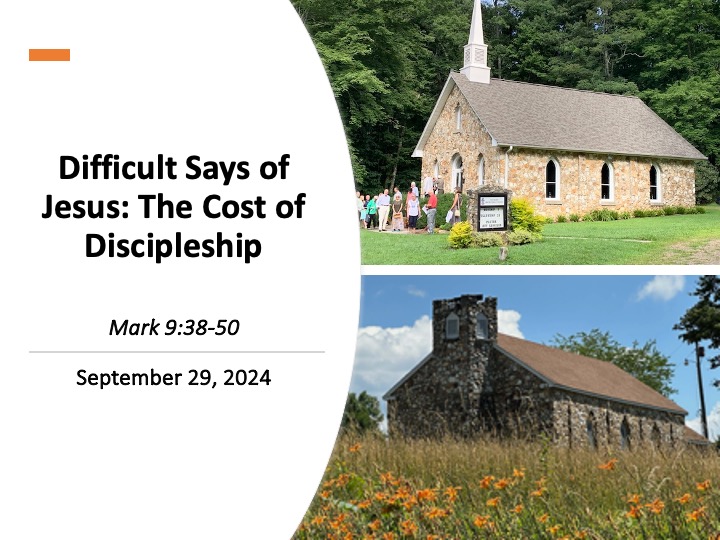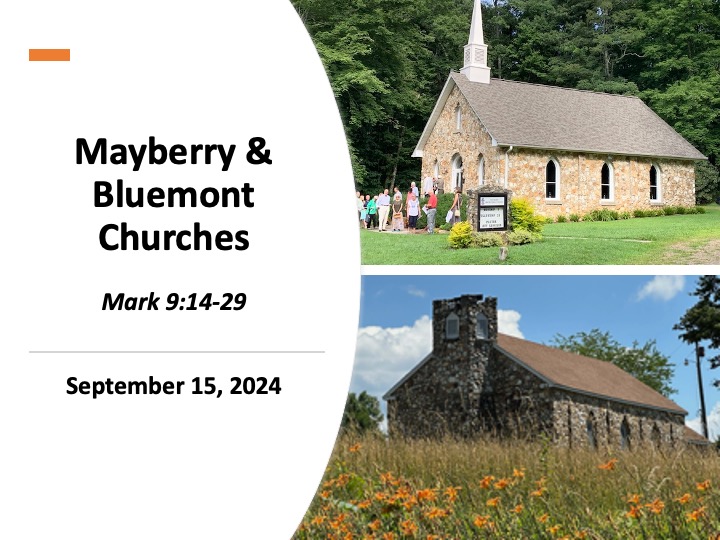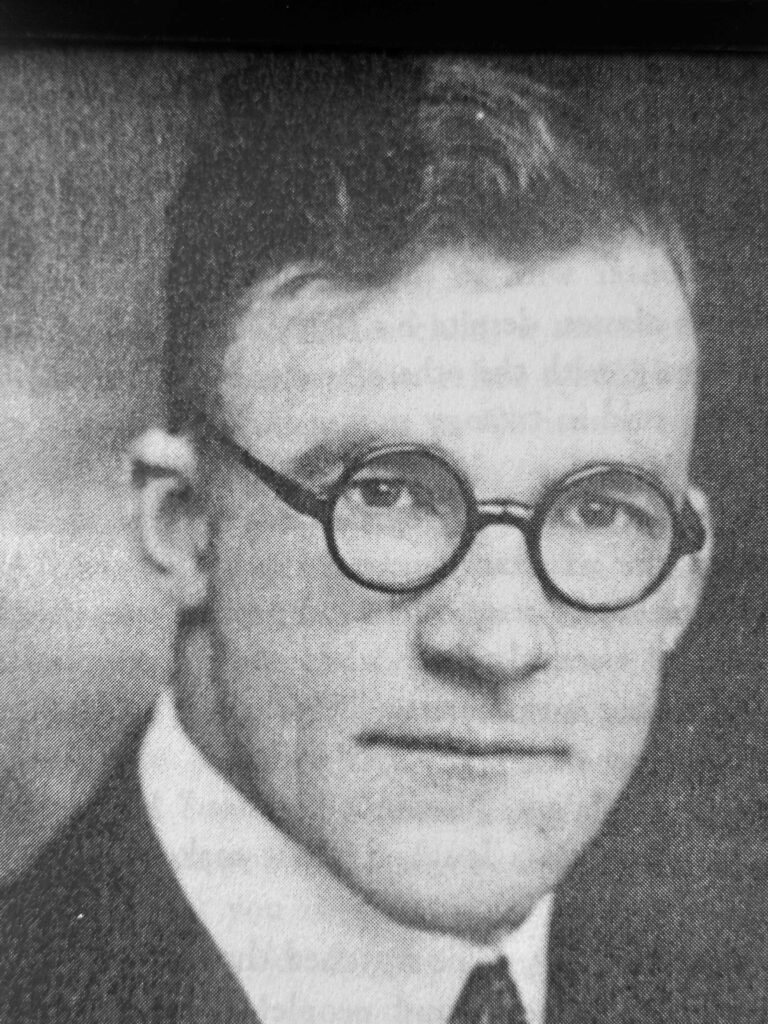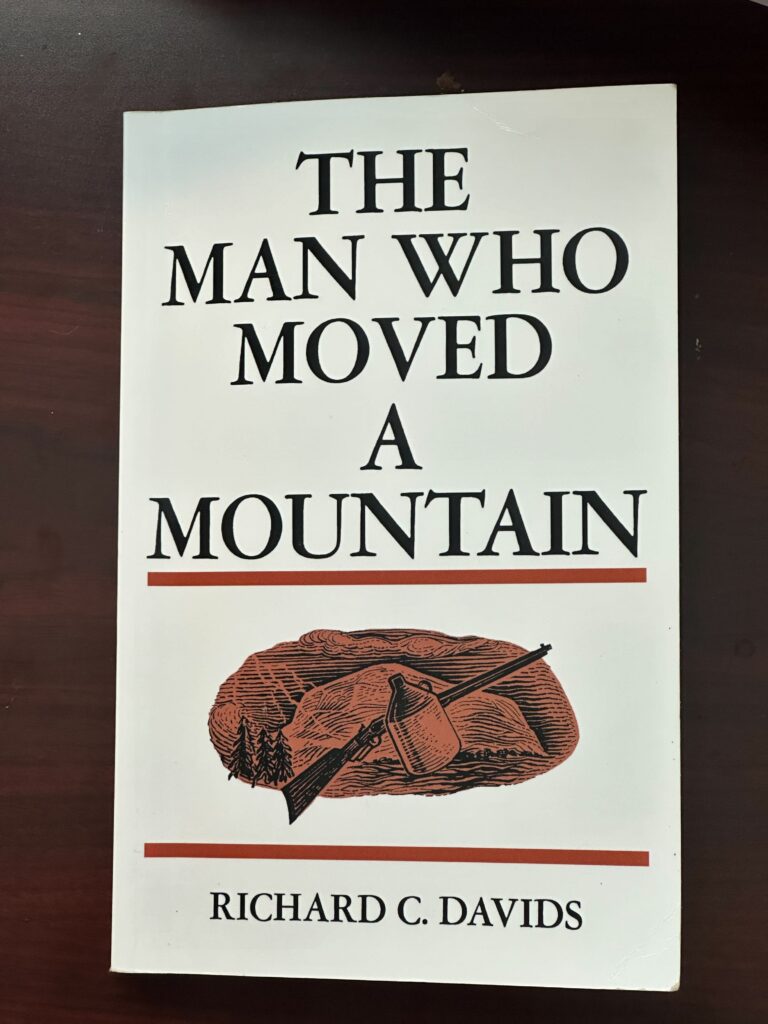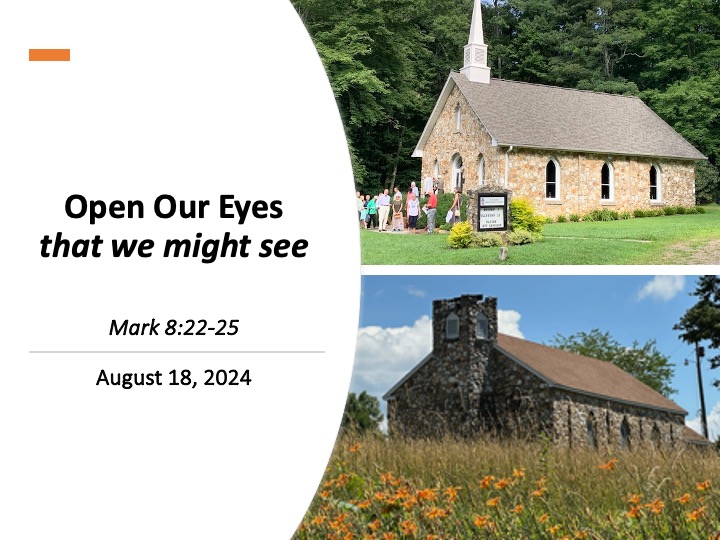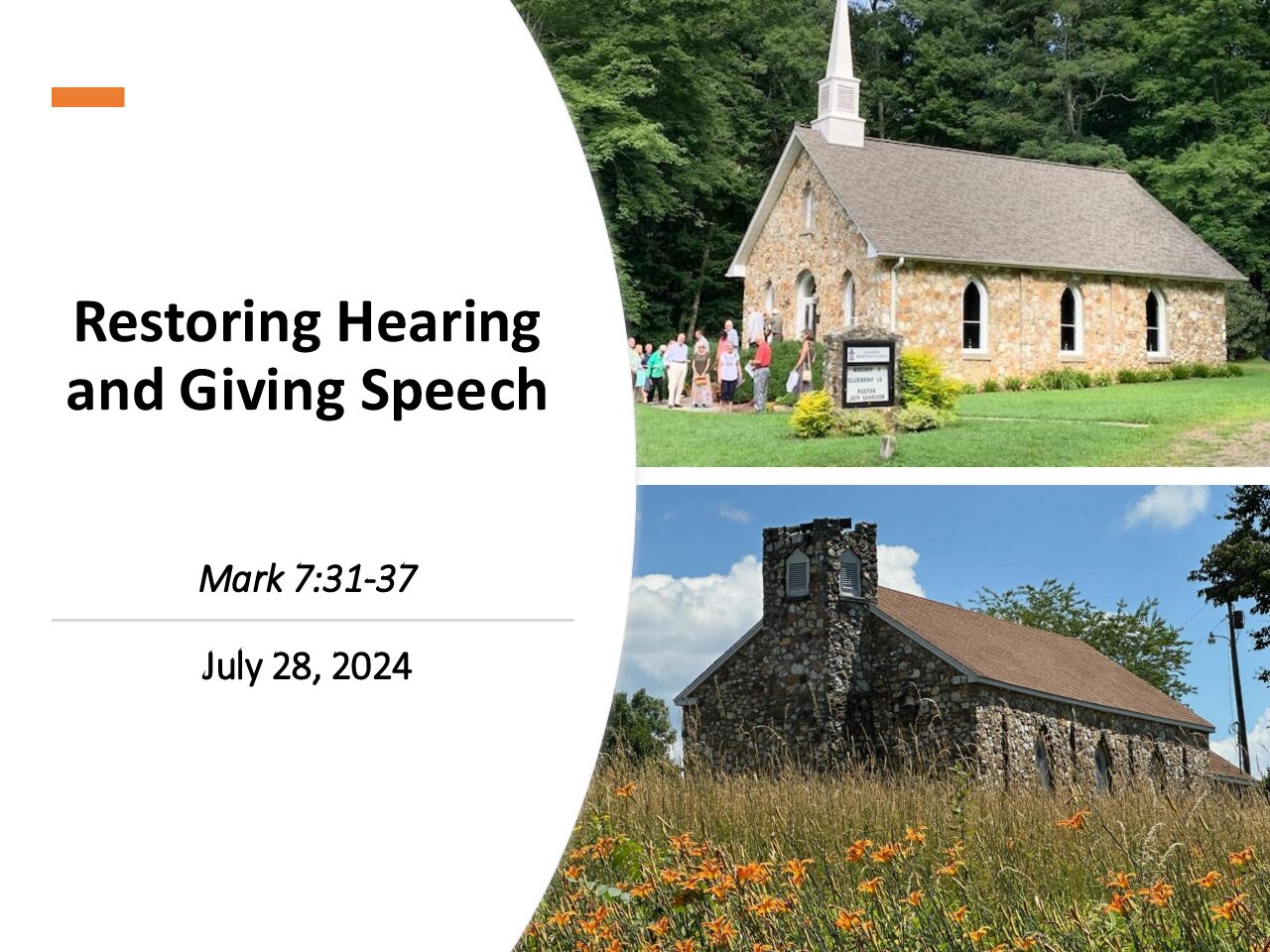Jeff Garrison
Mayberry and Bluemont Churches
October 6, 2024
Mark 10:1-16
At the beginning of worship:
We’ll begin this morning with an exercise. If able, stand up. I want you to greet those around you like this: “Good morning. My name is ________. I’m a sinner. I’m a part of the problem. Thankfully, Jesus loves me and offers grace and forgiveness.”
I had you do this exercise of admitting you’re a sinner and a part of the problem for a reason. It’s not to make you feel guilty, but to prepare you for the sermon. There are probably some of you here who don’t want to hear what I have to say. Because of my past, I’m not excited about preaching this sermon. But I committed myself to preaching through Mark’s gospel and here we are…
Also, one thing setting Christianity apart from other faiths is our admittance that we’re a part of the problem. Only Jesus is sinless. The rest of us fall short, but because God is gracious, we have hope.[1] Ours is a faith of hope, not of casting blame on others for the problems in our lives and world.
Before reading the Scripture:
There are a couple of things happening in the opening of Mark 10, which we’ll explore today. First, Jesus begins his journey toward Jerusalem. We’ve seen over the past few weeks Jesus twice tell the disciples that he’s heading to Jerusalem to die and to be raised from the dead.[2] The disciples don’t understand and are not overly receptive to what Jesus says.
Next, Jesus teaches them about relationships. In verses 3 through 15, Jesus reminds us marriage is a blessing from God, and lifts children as a gift from God and worthy of his and our attention.
Whenever someone tries to trick Jesus, we know to watch out. Jesus is quick and able to turn the table on those who use clever questions to discredit him. This happens here. Asking Jesus if it is lawful is essentially asking him if it is Biblical. The law was found in the Torah, in the opening books of our Old Testament.[3]
Divorce is addressed in the 24th chapter of Deuteronomy. The text speaks of a man giving his wife a certificate of divorce “because she does not please him because he has found something objectionable about her.” Obviously, at this time, there were no considerations given to women filing for divorce, only men. Since men taught the Torah, the law, it’s regrettable but understandable they interpreted things favorable to them.
In Jesus’ day, there were several rabbinical schools of thought concerning marriage and divorce. Let me introduce three:
- The disciples of Shammai maintained a strict interpretation of the divorce law, emphasizing the objectionable clause and suggesting divorce could only be granted under the most serious circumstances, generally adultery. I think Jesus’ interpretation falls closest to this camp.
- A second interpretation was presented by Rabbi Hillel, one of the leading rabbis during the years right before Jesus’ coming. His followers were more liberal in their interpretation; emphasizing the idea of a woman not pleasing the man was reason enough for divorce. They suggested even minor indiscretions such as burning dinner could be grounds. Obviously, their interpretation failed to provide protection for a woman. But it got even worse.
- The followers of Rabbi Akibe suggested any reason could be used for a divorce, including finding a more attractive wife. In his thought, the woman doesn’t have to be at fault at all. The question asked by the Pharisees falls into this last interpretation of the law, “can a man divorce his wife for any reason.”[4]
Jesus asks them what Moses said and they quote from Deuteronomy 24: 1. Interestingly, Jesus exposes that this law doesn’t reflect God’s intention. Instead, God provided this law because of hardened hearts.
Then Jesus recalls the account of creation from Genesis. There, the man and woman are created in the image of God as “male and female.”[5] Jesus affirms the God’s intention within God’s good creation. Men and women have been created to support of one another.
Then Jesus moves to the second chapter of Genesis. There, marriage is interpreted in this manner, “For this reason a man shall leave his father and mother and be joined to his wife the two shall become one flesh.”[6] This is one place where I like the older translations better. The King James Version here reads that the man shall “cleave” to his wife. Cleaving implies an embrace or yoking together of two into one. Husband and wife work together as a team for common goals and ideals, both taking on a load and both encouraging the other.
Finally, Jesus, tells his audience in verse 9, they must be careful not to separate what God has brought together.
As we have seen before in Mark’s gospel, once Jesus and the disciples are back in the house where they were staying, the disciples ask for clarification.[7] Jesus interprets divorce and remarriage as adultery, whether done by the man or woman. In other words, divorce goes against God’s intention in creation. We should also remember that in the Sermon on the Mount, Jesus equates lust with adultery of the heart, which forces most all of us to acknowledge our sinfulness and to depend upon God’s mercy.[8]
Afterwards, it appears Jesus and the disciples are back outside with the crowd, with people bringing children to Jesus. The disciples don’t like this. Remember how I told you a few weeks ago, children in the first century didn’t have the same status as today. Jesus, however, elevates children and encouraged the disciples to welcome them, for in doing so they welcome him and the one who sent him.[9]
It doesn’t appear the disciples learned their lesson about what Jesus taught there, for now they stop people from bringing their children to Jesus. Perhaps the disciples rationalize their decision on the ongoing “adult conversation” on divorce. Jesus, however, intervenes and demands the children be invited in, reminding them one more time that the kingdom belongs to the likes of them, the children.
Children, as an example of what it takes to be received into the kingdom is the perfect wrap up to the divorce question. Children are totally dependent on others, just as we are totally dependent on Jesus.
In this passage, we see that the Pharisees want Jesus to draw a line, to interpret the law in a strict manner. Jesus responds first by recalling God’s intention for marriage. He recalls God’s grand plan as an ideal. The Pharisees, whose minds are so caught up in the letter and interpretation of the law, are unable to see what our Savior says.
So, what is Jesus’ position on divorce? It’s safe to say, he doesn’t like it. However, as we know, marriages often end in divorce. If Jesus were here in person right now, would he be throwing stones?[10] I don’t think so. I think he’d be compassionate yet broken hearted at the way we treat relationships.
However, I also think he would be totally against the idea that men should control women as property, as was the case in the first century. With his teachings on divorce, Jesus raises the position of women for the time. He abolishes the double standard which existed and makes a case against polygamy.[11]
You know, happy marriages don’t often make the headlines.” We hear more about unhappy marriages, but at the same time we all know of marriages which are solid. Such examples provide an example for us. The key is commitment; to be committed and devoted to one’s spouse. Of course, that doesn’t mean it’s always going to be easy.
Another tidbit of wisdom I’ve learned is that if there are never any struggles within a marriage, there’s probably just a lot of indifference…” It’s the commitment which helps us move beyond the struggles.
This passage shows us our need of God’s grace. According to Jesus, divorce and remarriage is a sin. But then, all of us have sinned and we will all sin again. Being divorced isn’t going to bar us from salvation, but it also doesn’t mean we can take divorce lightly. It’s a serious decision, for marriage is from God and who are we, mere mortals, to break such a bond? Yet, if we have broken such bonds, we can still rejoice for redemption available for those who are willing to confess their sinfulness and depend upon the mercy of Jesus Christ.
In this passage, we learn God desires for us to be in relationships. Marriage is a holy relationship, in which God plays a role by bringing together the couple. And children, who are also God’s blessings to parents, are precious to the community. They show us how we should approach our faith.
In closing, let me quote from Doug Hare, one of my professors, who addresses Jesus’ intention for marriage this way:
With Jesus, we affirm the Creator’s intention that marriage remains a lifelong commitment despite its inevitable frustrations. We acknowledge that in a sinful world this ideal, despite our prayers for grace, may often fail to attain. The ideal remains our lodestar.[12]
Lifelong companionship of one man and one woman is God’s plan for us. That’s our loadstar, the ideal to which we’re to strive. However, just because we fail doesn’t mean we’re doomed. For all our life is covered by our Savior compassion. Amen.
[1] Romans 3:21-25.
[2] Mark 8:31-32 and Mark 9:30-32. See https://fromarockyhillside.com/2024/08/25/who-do-you-say-that-i-am/ and https://fromarockyhillside.com/2024/09/22/welcoming-the-vulnerable/
[3] Frederick Dale Bruner, The Churchbook: Matthew 13-28 (Grand Rapids: Eerdmans, 2004), 249.
[4] This breakdown on views of divorce in 1st Century Palestine comes from Bruner, 249-250.
[5] Genesis 1:26-27.
[6] Genesis 2:24
[7] See Mark 4:10-11, 7:24, 9:28-29 and 33-35..
[8] Matthew 5:27-28
[9][9] Mark 9:37. See https://fromarockyhillside.com/2024/09/22/welcoming-the-vulnerable/
[10] Death was the punishment for divorce and was carried out by stoning, but it appears to have been seldom carried out. See Leviticus 20:1, John 8ff, 2 Samuel 11ff.
[11] Douglas R. A. Hare: Westminster Bible Commentary: Mark (Louisville, KY: WJKP, 1996), 120.
[12] Douglas R. A. Hare, Matthew: Interpretation, a Biblical Commentary for Teaching and Preaching, (Louisville: John Knox Press, 1992), 223.


